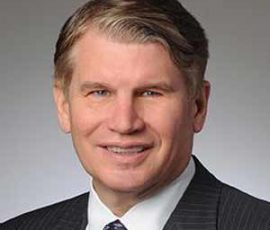
“The 18th century philosopher and contributing founder of modern economics, Adam Smith, coined the term “invisible hand” to describe how individuals working in their own self-interest can benefit society as a whole. In the United States today there is an invisible hand driven not by self-interest but by altruism that benefits millions every day. This invisible force for good is the private foundation.
My first experience with this invisible hand came while growing up in Havre, Montana, where there was little respite from the chilling temperatures, and even less in the way of literary or cultural resources. The one place I knew that was both warm and filled with knowledge was the Carnegie Library. I took this special place for granted as a child. I never asked how the name of a 20th century robber baron could wind up on a wonderful two-story brick building in a town that he never visited. I later learned that this important keystone of my home town was one of 2,500 libraries that Andrew Carnegie, a Scottish immigrant, and the Carnegie Corporation built around the world. Having made his money in steel, Carnegie dedicated his fortune, in perpetuity, to develop solutions for the betterment of humanity…
The M.J. Murdock Charitable Trust in Vancouver, Washington is an example of the invisible hand. The organization started with $90 million in principal but has given away over $850 million dollars over the last 40 years. Today it grants almost $50 million to over 300 nonprofits in the Pacific Northwest, improving the lives of tens of thousands of people throughout the region. Despite this impact, few people would even know the organization exists.”
Read full article here >>







